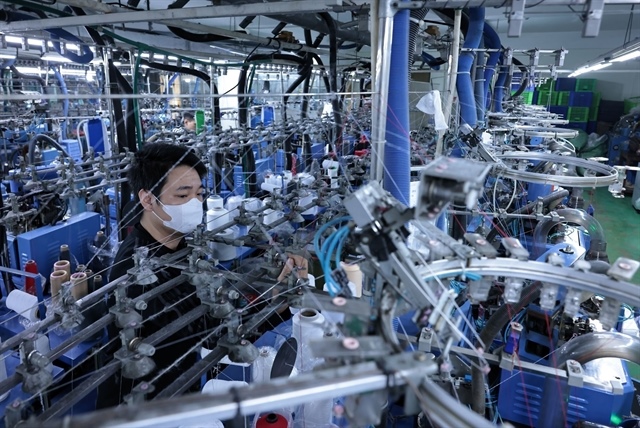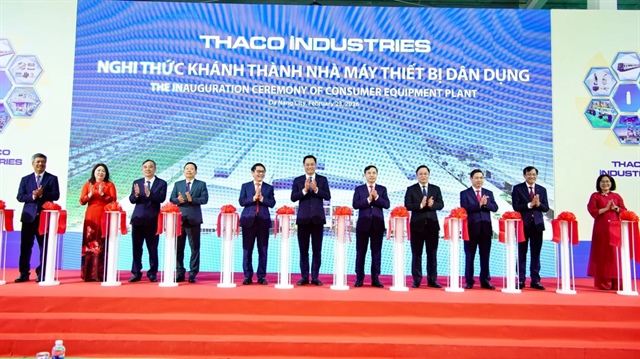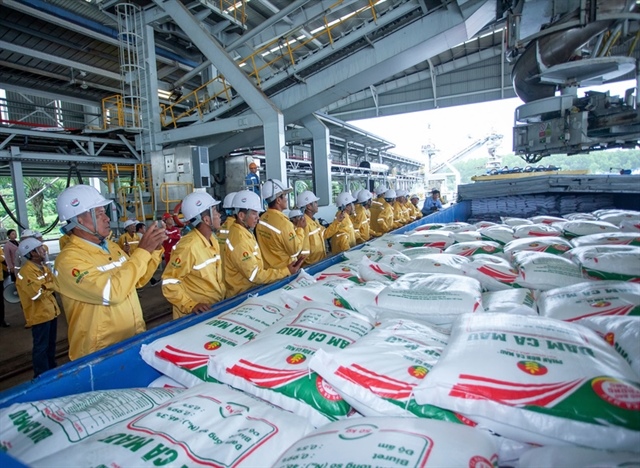Vietnamese firms ‘indifferent’ to technology transfer from Korea
Vietnamese firms ‘indifferent’ to technology transfer from Korea
Vietnam and South Korea have reached an agreement on technology transfer but few Vietnamese businesses are interested in taking advantage of it, despite their Korean counterparts willing to share their experience free of charge.

Under the agreement, South Korean companies are committed to transferring more than 280 pieces of technology to Vietnam in the fields of textiles and garments, electronics, automobiles and manufacturing during 2015 and 2016, however the combined number of Vietnamese recipients is still fewer than 40 so far.
In 2015, multiple South Korean firms offered to transfer 100 pieces of technology, but only 28 Vietnamese companies eventually completed the process, according to Vietnam’s Ministry of Industry and Trade.
Most of the technology recipients operate in the fields of textiles and garments, electronics, automobiles and manufacturing.
In 2016, the South Korean side increased this number to 182, but the number of Vietnamese recipients dropped to merely 11.
This year another batch of 100 technologies have been up for transfer with the final list of recipients to be publicized later this month.
Nonetheless, according to data gathered by Tuoi Tre (Youth) newspaper, it is unlikely that many more local firms will be willing to receive a transfer.
Incapable recipients
Pham Tuan Anh, deputy head of the heavy industry department under the Ministry of Industry and Trade, confirmed to Tuoi Tre that only a modest number of local companies have received technology transfer from South Korean enterprises.
The technology transfer requires recipients to have a certain capacity in technology and capital.
“Most Vietnamese companies in the supporting industries are small- and medium-d enterprises, and they do not meet these requirements,” Anh explained.
Le Nguyen Duy Oanh, deputy director of the Center for Supporting Industries Development, managed by the Ho Chi Minh City Department of Industry and Trade, confirmed Anh’s view.
Oanh said Samsung had offered to transfer technology to Vietnamese businesses so they could improve themselves to the standard of suppliers to the South Korean electronics giant, but the reality is a tough road.
“In order to receive technology from Samsung, local businesses have to buy new machinery and equipment to meet the standards the South Korean company currently applies to its worldwide production chain,” Oanh explained.
Local companies are financially unable to fulfill these requirements, and “this is why there are only ten Ho Chi Minh City-based Vietnamese firms qualified to be Samsung suppliers,” Oanh added.
Outlet unguaranteed
In other cases, the transferer and transferee cannot see eye to eye.
The director of one business in northern Vietnam said that while he was willing to invest in improving his facility to be able to receive technology from South Korea, he could not reach an agreement with the technology transferer because “[they] have totally different viewpoints.”
“We want the South Korean firm to guarantee to buy our products once we begin production with the transferred technology,” he said.
However, the director said, the South Korean firm promises only to buy ‘standardized’ products, which means “those with even lower prices than current suppliers, a requirement newcomers like [it] are never able to meet.”
Dao Phan Long, general secretary of the Vietnam Association of Mechanical Industry, explained that most Vietnamese businesses have little interest in receiving the technology transfer because distribution of their products, manufactured with the new technology, is not guaranteed.
“Manufacturing and mechanical businesses are afraid that they will be unable to sell their products after spending money on upgrading their facilities,” Long said.
Despite the low uptake, the trade ministry said the technology transfer agreement with South Korea will continue to be implemented to “allow South Korean firms to find qualified partners in Vietnam.”






















